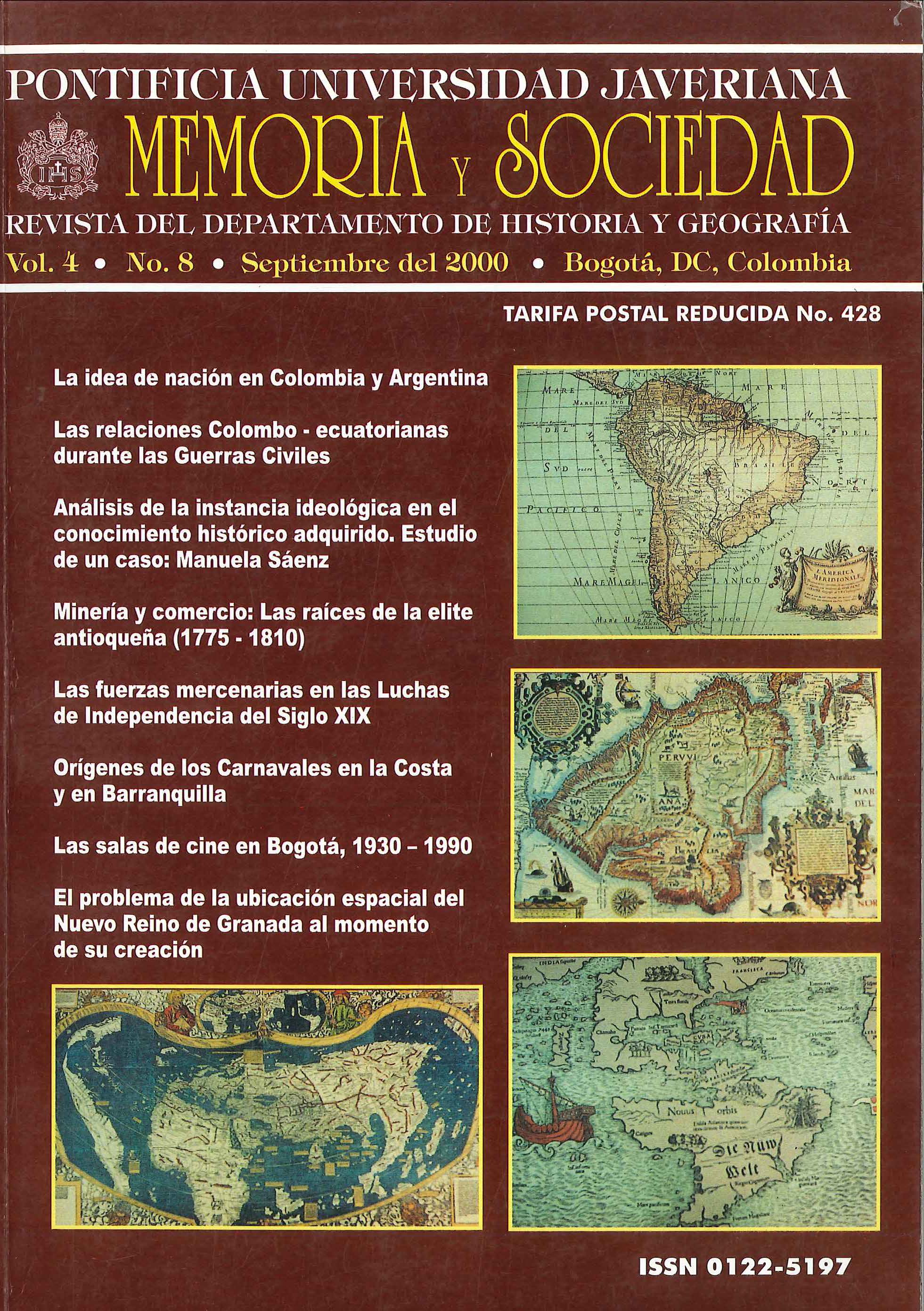Abstract
This article explores the mercenary character of the foreing troops that participated in the process of political independence in new Granda and Venezuela in the first half of the nineteenth century. Mercenary troops were employed because of limitations placed on the participation of Native americans as part of creole Military policy. This situation produces difficulties in foreign trade which had financial, military and political consequences for mercenary conscription. Finally, the article shows how, at the conclusion of the armed struggle, there was an attempt to control the foreign, mercenary presence which, in some cases, developed into a "neocolonial venguard" to directly influence the republican political activity, representing a threat to creole political control.The journal Memoria y Sociedad is registered under a Creative Commons Attribution 4.0 International Public License. Thus, this work may be reproduced, distributed, and publicly shared in digital format, as long as the names of the authors and Pontificia Universidad Javeriana are acknowledged. Others are allowed to quote, adapt, transform, auto-archive, republish, and create based on this material, for any purpose (even commercial ones), provided the authorship is duly acknowledged, a link to the original work is provided, and it is specified if changes have been made. Pontificia Universidad Javeriana does not hold the rights of published works and the authors are solely responsible for the contents of their works; they keep the moral, intellectual, privacy, and publicity rights.
Approving the intervention of the work (review, copy-editing, translation, layout) and the following outreach, are granted through an use license and not through an assignment of rights. This means the journal and Pontificia Universidad Javeriana cannot be held responsible for any ethical malpractice by the authors. As a consequence of the protection granted by the use license, the journal is not required to publish recantations or modify information already published, unless the errata stems from the editorial management process. Publishing contents in this journal does not generate royalties for contributors.

